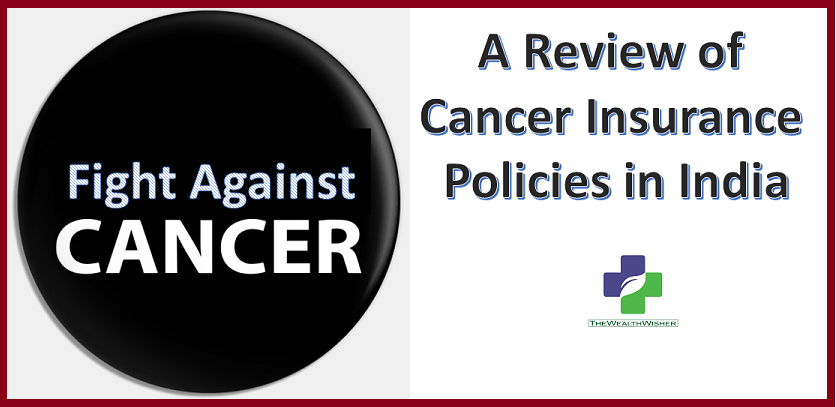- Cancer is common & wide-spreading. Being paranoid or denying is not an answer. One has to be ready for it. Just look around you – family, friends & office. You can feel the proximity. Option – Be Ready – Mentally & Financially. And, financially you can depend on a Cancer Insurance Policy.
Worldwide 18.1 crore new cases were reported and 9.6 crore death occurred. A 50% survival rate for new cases.
In India also, Cancer is the second reason for deaths after Heart-related diseases. Around 30 Lakh people say “goodbye” to their family because of cancer.
Sonali Bendre, Lisa Ray, Yuvraj Singh, Rishi Kapoor & many more survived due to timely diagnose & long treatment.
Fighting such an ailment still continues to be a challenge, as it involves huge expenses.
Thank god now we have Cancer-related policy to provide financial assistance. I hope, by the time the family could think of opting for separate cancer insurance, it is not too late.
A Mediclaim or a Specific Cancer Insurance Policy?
First of all, if you have a regular Health Policy or mediclaim, chances are it is not covered or it is not providing adequate cover.
While a general mediclaim insurance is a must, opting for critical illness policy that covers cancer is also required.
There is no way we are suggesting that cancer policy is enough. One must ensure that he has a basic health policy in place to cover initial hospitalization charges.
Some cancers are covered in Critical Illness riders of the Mediclaim Policy. The main drawback of CI Rider is, it pays only when cancer has occurred at a high stage (severity). Lower stages are not covered when a person may need rounds of Chemotherapy or Radiation sessions. So a specific cancer insurance policy is a must.
A specific cancer plan is must for you if:
- You have a family history of cancer.
- You do not have adequate assets for cancer treatment.
- You work or live in an environment where you feel cancer is proximate.
Here are the options:

Some Cancer insurance plans provide a lump sum benefit on the diagnosis. Some will provide stage-wise benefits. Generally, it is 25-30% at the time of Stage I/II & rest 75/70% on advance stages.
How does Cancer-Specific Plan work?
 Cancer has 4 stages:
Cancer has 4 stages:
Stage I: Carcinoma In Situ (CIS)
Stage II: Early stage
Stage III: Major stage
Stage IV: Critical stage
Cancer Insurers the first two stages & the last two in the same way.
Cancer policies offer limited coverage for early-stage cancers to 20-25 percent of the sum insured. If advanced stage cancer occurs, claim for entire sum assured minus claim already paid out is paid to the policyholder.
In case the patient dies within the waiting period there is no death benefit. Only 100 percent of the premium is refunded to the family.
There is an initial waiting period of 180 days. This is applicable for both new policy & reinstatement of the cancer policy.
Also in some polices, a survival period of 7 days is there. The patient has to live 7 days from the date of diagnosing.
Few policies offer Premium Discount if taken for a certain term or taken together for more than a year.
Cancer Insurance Policies have Tax Benefit as per Sec 80 D of Income Tax Act.
Cancer Policy will not cover the following:
- Cancer developed by biological, nuclear or chemical contamination.
- Preexisting conditions.
- Skin cancer (in most policies)
- Cancer directly or indirectly arising from STDs, AIDS & HIVs.
Things to check while opting for a Cancer Insurance Policy
- Benefits and pay-outs at every stage of the cancer insurance policy
- The total benefit under the plan (Sum Insured). Cost is rising and so is the treatment cost of Cancer. The policy must provide a good cover plus good bonus cover in case of a claim-free period. No claim bonus can get you up to a 200% increase in your cover.
- Check whether the plan offers a fixed sum insured or increasing like sum insured increases at say 10 percent every year up to a certain fixed limit.
- To check if there is a waiver for all future premiums upon diagnosis.
- What stage the plan offers premium waiver.
- Does the plan has regular income benefit as a fixed percentage of the sum insured?
- Some types of cancer are excluded in policy for eg Aegon Life’s iCancer does not cover skin cancer.
- Check if any specific cancer or recurrent claims the same organs are excluded or not.
- Waiting Period & Survival Period – Minimum is better.
- Policy Maturity & Term Allowed.
- Life-Long renewability.
I hope the comparison will help you in finalizing the best cancer insurance policy for you.
Do contact us through email madhupam@thewealthwisher.com or through the comments section below.










